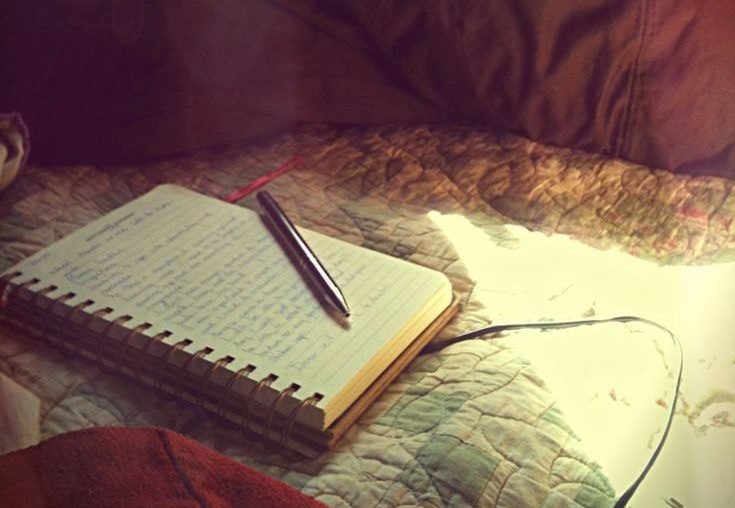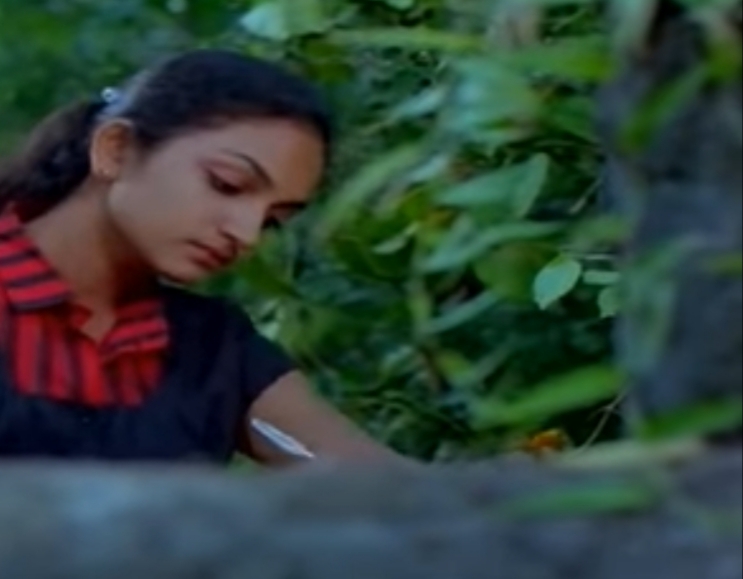
Art is different from literature and music. Says Michael. And what makes Art, the only place where people inquire for reality? “Art is everything a man goes through.. It is his life, his mind, his thoughts…” Gayatri’s remark takes Michael into a realisation that she’s someone who’s adroit at the same passion that he possess. And this dialogue presentation is one of the many instances where I could really adore Ann Augustine as an actress, a deserving state award winner for her Gayatri.
‘Artist’ is one such movie, that unveils Shyamaprasad’s prowess as a film maker. I have always been fascinated by indepth movies. Commercial or feel good movies do entertain for that watch time. But there are movies that leaves an unsolved question, or that tries to say something indirectly, such that it would pierce down into your intellect as well as your mind, your heart, out of which you would finally ignite puzzles of joy, that lasts forever. And this movie takes a special place among my favorite movies of all time.
Here, as my title hints, the movie is all about paints, people and canvas. If gayatri could ever look at her life as a canvas, as quick as a flash i can say that it would seem all blank. All her love, all her efforts, and all the pain that she carried on and through her young veins, are seen falling off at a moment, at a single moment in the movie.
As I said in the beginning, another instance where Anne magnificently melts down into the character of gayatri, is in the climax scene, where she walks away, but towards the audience, saying to us that there would come such a moment in your lives, where you would have to leave the place, without saying a word, because you finally realise that it won’t make any change.

Fahad Fasil as Michael becomes the perfect antihero, that he could well bring out in us all the disgust and abhorrence for his character as the plot necessitates. There is this character of Roy, played by Siddarth Siva, whom we come across at the start of the movie, waiting for Michael to discuss on an art exhibition, that Gayatri somehow managed to get going. Anne portrays the very staunch wife of Michael, who is struggling with her dissenting husband who in no way supports her to make both the ends meet. Roy leaves the place as Michael fails to reach at time, and here we can watch the shivering hands with an old nokia phone and teary eyes, those with a hopeless glint, blinking in dismal as Roy passes.
Michael’s relationship with many girls, that lasted in no time, has been divulged through the character Abhi, a close friend of Michael. Gayatri couldn’t give up her passion on art as well as Michael, that she deliberately unheard all the single grumbles that came towards her, in her way of choosing Michael. Amidst a song sequence there comes a second of time, when gayatri is made to ask Michael that why do he love her. And his answer was that she was young and untouched. Gayatri is seen arguing with her parents on her relationship with Michael, and besides of being a single daughter raised up in a conservative Brahmin family, she doesn’t stop herself in leaving her parents, to move into Michael’s life. Being in an live in relationship, Michael puts on the breadwinner role to gayatri, and entails in his world of paintings.
Michael’s character reminds me of the painter in Edgar Allen poe’s short story, ‘The Oval Portrait’. The man who is in endless love with art kills his wife, letting her starve inorder to complete his work. Similarly gayatri is here letting herself tear down out of her love for Michael. And love alone stands on ahead of her, in her arduous journey. “Art is a jealous mistress.” Ralph Waldo Emerson’s quote sum up both the plots.
The husband, a painter, in poe’s’ short story, requests his wife to let him paint her portrait, and in obeying him, she meets her grim. As the painting matured, her health and energy declined and yet she remained and, without objection, she continued to sit for him. His passion for the portrait increased and as the painting nears completion, each stroke of the brush strips her of her beauty, and finally, upon the conclusion of the painting, it robs her of her life.
Beyond art, Shyamaprasad sways our thoughts to the bitter reality of life, where man in no way can take command of his own life. But he is just a glove puppet in fate’s hands. Unpredictable is human life and the sournesss can’t be neglected but to accept is the very thing that man can do.
In the movie, Michael mets with an accident, and there begins gayatri’s real tussle. He loses his vision, but still has his power of sight at art. In an earlier scene, we are shown Michael and Gayatri sitting on the sea shore, where Michael convinces her, his wish to conduct a huge art exhibition with lots of canvases suffused with psychedelic paints. There Gayatri, lamely asks him how can a man live with art alone. Michael smiles, what else does he have?
As the director wins over in his talent to prompt us to understand even a single silent moment, connecting to art, man and life, there attains the perfection of the movie.
Now the most stirring part of the movie for me personally, lies in the name of Michael’s art exhibition, as suggested by Gayatri. Dreams in Prussian Blue it is.. “Why Prussian Blue? It can be cobalt blue, serolin blue.. why is it even blue?” For Michael’s wonder, Gayatri hold on a second, imbibing pain, and says.. ” simply, blue sky, dreams, in the blues, moody blues.. such a way.. blue is beautiful, as your painting”. She couldn’t stop her repentance by seeing the canvas filled with only blue colour, tinted with Abhi’s old collection of blue paints. Abhi, as if lending an helping hand, asks her to stop ravaging herself in a cafe, working overload to get extra money for household matters after buying paints and brushes for Michael. Getting up all of his old stocks of paints would help her lessen the burden, and in passively obeying the only one who atleast stands beside herself and Michael, she even forgot the potency of deceive that that are doing to Michael, only because he’s blind. Gayatri gradually becomes aware that Abhi is trying to mishandle his otherwise friendly relationship with her. He even blackmails that Michael would get to know the truth about the paints if she wouldn’t please his sensual needs. Reluctantly she runs away from the till then ‘good’ person. By cheating on his pregnant wife, here the character of Abhi takes an entirely different dimension from the beginning of the movie, where all we could see was a smiling innocent young man with heart full of friendliness.
“Why is the proportion not being right as before?” Gayatri has no answer. As a lunatic one, Michael roams around the room holding the canvas, blaming the changed company of paints, unrecognising that his canvas is not filled with colours of his mind, but are simply blue.. Prussian Blue.
It’s the day of Michael’s art exhibition. Gayatri in a profound blue saree welcomes the art lovers, flooding to watch the blind man’s Magnum opus. Siddharth is now pleased to organise the exhibition, and praises the indepth meanings that the colour blue unrolls in the eyes of the spectators.
Michael’s dream was her too. And it’s that rare day in the span of the movie that we can glimpse at the happy face of Gayatri. And in no time all her happiness seems to fade away when she finally got to see Abhi’s wife with Michael, in a desperate mood, while Abhi is standing abreast with a smile of revenge. She is trying, trying hard not to knock down the vigour of the day, the vitality of Michael’s art. But she stood stagnant before them as the only wrongdoer . In no way could she prove her innocence. How to? Or was she really innocent? All the fingers pointed towards her, the whole blue sky showered drops of agony, its tip striking off her heart, shattering it into pieces that nobody could ever rejoin into an image or an art of love. “The exhibition is mine, mine only. You can leave. Blue is the colour of deceive. Of lie”. And now, no more words, no more tears would get back her heart at the art which she lived for. She has to leave. Leave to nowhere. And Gayatri is nearing to us, looking at us, her eyes being an ocean of thunderous waves, her lips shivering with numbness of sorrow, her monologue goes like this.. ” In all lives, there is a point of no coming back. If we reach at that endpoint, the only way is to accept the truth in silence. we can only live such a way then. So goodbye, goodbye Michael. Remember that I too got hurt. Love alone isn’t enough to live this life. No sincerity can evade the pain in any relationship. And when time comes, those who are destined to get hurt, should end up in hurting itself. That’s life.”
And that’s it . It was all for Michael, all for her love. It was the story of a young girl in her late teenage, leaving everything behind for her love, working day and night to earn the livelihood, to look after her narcissist partner, to look after her own dignity, amidst those vulturous men over there. And.. it was Gayatri’s story of her blank canvas, that had no single drop of paint to be tinted, that it all eroded in her love and in her pain.
Image Credits: Google









You must be logged in to post a comment.